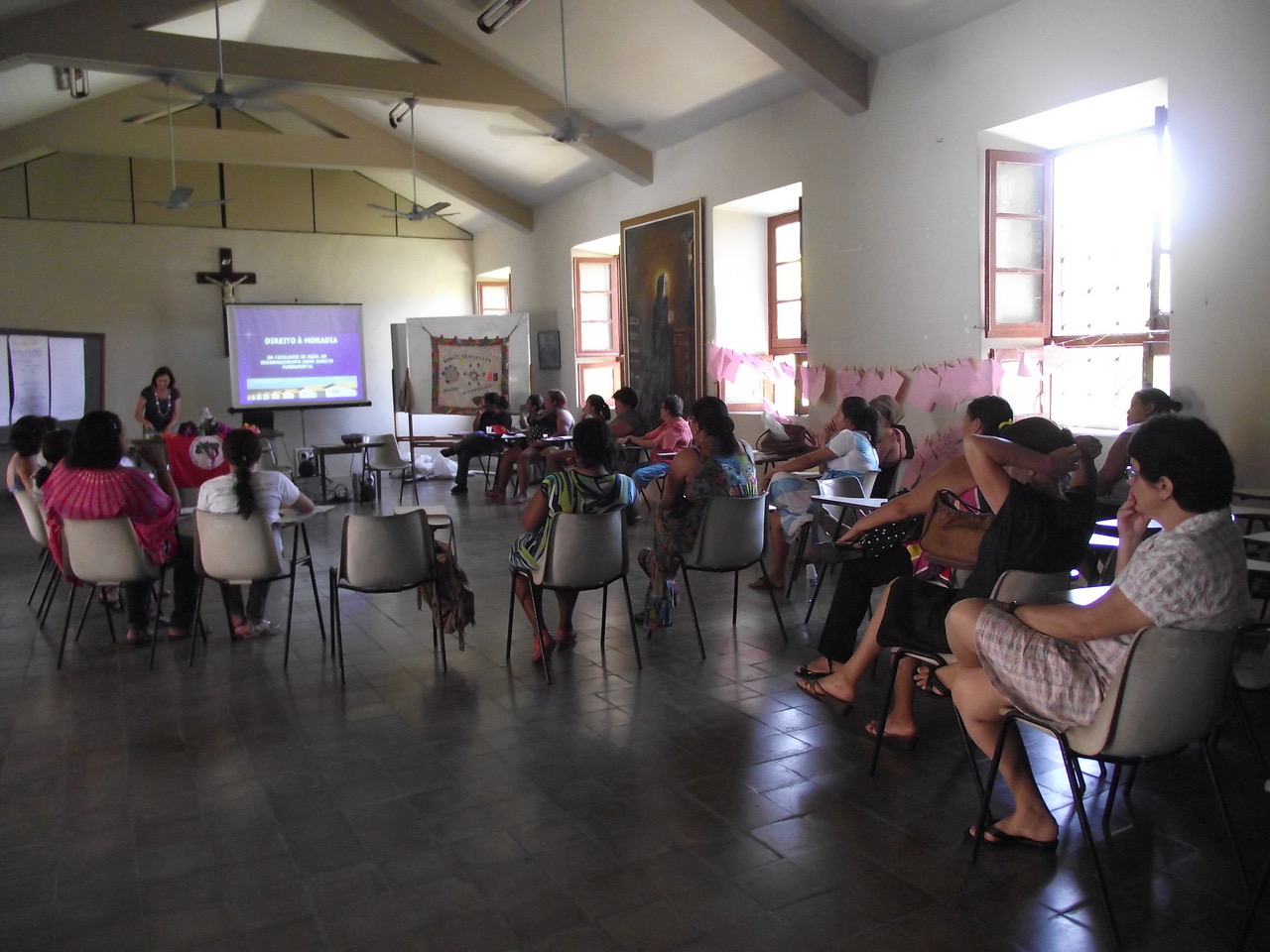Founded in 2008, the work of the Feminist Space has been based on its own methodological process, developed from experimentation, analysis, reflection, evaluation and redirection. The construction of this process is guided by a methodological framework elaborated in consonance with the mission, principles, objectives and axes of action of the organization.
The Feminist Space today has a wide experience and recognition in the field of:
Producing knowledge about the situation of women and conducting various studies, research and publications.
The production of knowledge respects the protagonism of women as political subjects, promoting democratic relations between knowledge and everyday social practices, with the ultimate goal of empowering women;
Training processes aimed at the valorization of women as autonomous subjects, and that encourage their participation in spaces for the formulation and monitoring of public policies.
The training adopts the principle of horizontality and dialogue of knowledge and knowledge. The EF understands that studies and research are an essential part of the process of training women, and also uses all the material produced, since it translates the reality and daily life of women, facilitating the perception of reality, its analysis, a critical posture in front of it and the dialogical and democratic participation, methodological references of our work;
National and international articulation
Participating in networks and other important spaces for discussion and building alliances at all levels. Thus, the Feminist Space has been building and nurturing relationships with diverse organizations, movements, networks and coalitions, which allows to operate from the local to the global in a vertical relation, but also with diverse groups, movements, networks at local, municipal and territorial level, the which is expressed through horizontal relations of exchange of knowledge, reciprocal and respectful strengthening between the groups, guided by the leading role of women. Our articulations also recognize the need to work with diverse sectors and establish relationships with diverse sectors ranging from universities and research centers, to local, state and national governments;
Advocacy and advocacy
Promoting opportunities and spaces for women to act in decision-making and social control processes and monitoring the implementation of public policies that guarantee equality of gender, race and ethnicity.

